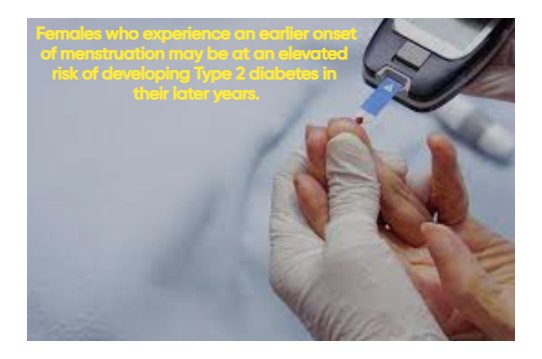Those who initiated their menstrual cycle at the earliest ages were observed to be at the highest risk, according to researchers.
The precise mechanisms underpinning the connection are not fully understood; however, researchers propose that it may be linked to elevated levels of estrogen—the primary female sex hormone—present in individuals who experience early onset of menstruation.

For a comprehensive US-wide study conducted between 1999 and 2018, researchers scrutinized data from over 17,300 women aged 20 to 65. Participants specified the age at which they commenced menstruating, categorized as 10 or younger, 11, 12, 13, 14, and 15 or older. Subsequently, their health was monitored to determine whether they developed Type 2 diabetes.
Led by academics from Tulane University in Louisiana, the researchers discovered that among the participants, 1,773 women (10%) developed Type 2 diabetes, and within this group, 205 also reported some form of cardiovascular disease.

Upon statistical analysis, it was revealed that, in comparison to women who began their periods at the age of 13, an earlier age at menarche (first menstrual period) was associated with an increased risk of developing Type 2 diabetes later in life. This consideration factored in various elements that might contribute to a person’s risk, such as age, family history, and weight.
Those who initiated their periods at the age of 10 or younger exhibited a 32% heightened risk. Additionally, the researchers observed a 14% increased risk for those commencing menstruation at age 11 and a 29% heightened risk for those starting at age 12.

Furthermore, among women with diabetes, an earlier age of the first period was linked to an increased risk of stroke, although not for overall cardiovascular disease.
